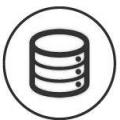If your sample is a simple random sample (SRS), there are formulas to calculate standard errors and confidence intervals. Most survey samples, however, are more complex than a SRS. This workshop will explain the various methods used for complex samples and show how to generate the right calculations in packages such as Stata and R.
Sign up for our weekly newsletter!
This is an archive of our past training offerings. We are looking to include workshops on topics not yet covered here. Is there something not currently on the list? Send us a proposal.
The goal of this workshop is to show students how to map census data using QGIS, a free and open source desktop software tool for working with geographic data. We will briefly discuss the basics of spatial data and coordinate reference systems. We will show how to load data in CSV and ESRI shapefile formats.
In this workshop we will learn about the basic concepts involved in georeferencing and get some hands-on experience with the process in QGIS, a free, open-source GIS tool. Georeferencing involves “spatializing” scanned maps or aerial imagery so that they can be used in a GIS. We will cover the basics of topics such as projections, coordinate systems, and the theory behind georeferencing.
Join the Qualitative Methods Group (QMG) for a conversation with Dr. Tianna Paschel about working with ethnographic and archival data. Dr. Paschel will share her experiences with triangulating across these data sources.
The focus of this workshop is machine learning using the H2O R and Python packages. H2O is an open source distributed machine learning platform designed for big data, with the added benefit that it's easy to use on a laptop (in addition to a multi-node Hadoop or Spark cluster).
This workshop addresses clustering and topic modeling in Python, primarily through the use of scikit-learn and gensim. We first read in a corpus, prepare the data, create a tfidf matrix, and cluster using k-means. We will then compare results to LSI and LDA topic modeling approaches.
This workshop will cover the main types of weighting, to correct for bias in sample data. These types of weights are designed to compensate for different selection probabilities, to correct for non-response, and to post-stratify data to match the demographic distributions found in census data or other criterion distributions.
Drupal is a powerful, open-source content management system (CMS) that provides a flexible platform for websites and web-based research projects. This workshop will cover the basics of how Drupal works, covering essential site building topics such as fields, content types, users, menus, blocks taxonomies, and views. The material covered in the workshop can be applied to administrative (e.g.
Relational database management systems (RDBMS) offer a flexible approach to research data management.
This two-part workshop provides an introduction to both quantitative and qualitative social science methods. Part II focuses on qualitative research, providing an overview of research design, the production of qualitative data, and the tools and practices common to a variety of qualitative methods.
This four part, interactive workshop series is your complete introduction to the capabilities of the Python language. By the end of the series, you will be able to apply your knowledge of basic principles of programming and data manipulation to collect data, process unstructured data, analyze tabular data, and automate the entire process.
This workshop is for students who want to acquire some hands-on experience with online tools for finding and downloading data from the Census Bureau. The goal may be to use those data in a statistical analysis package, but we will also focus on downloading and formating those data for use with geospatial analysis packages.
This two-part workshop provides an introduction to both quantitative and qualitative social science methods. Part I focuses on quantitative research, providing an overview of research design, the production of quantitative data, and the tools and practices common to a variety of quantitative methods.
Join the Qualitative Methods Group (QMG) for a conversation with qualitative research librarian Celia Emmelhainz about managing your qualitative data from start to finish of a project. We'll discuss how you can keep qualitative files organized, some options for anonymization, and ways to 'show your work' to funding agencies while archiving in secure ways that protect your participants.
In this hands-on workshop, students will learn the basics of analyzing data using SAS. We will cover examples on how to load, merge, and process data sets as well as how to analyze them using techniques such as linear regression.
This workshop will cover theory and techniques for maximizing the effectiveness of figures used for visualizing information. Rather than teaching any particular visualization software, this course will teach students about the "nuts and bolts" of effective data visualization. Dr.
*** CANCELLED *** *** CANCELLED *** *** CANCELLED ***
This workshop will introduce researchers to data sources (aggregate data, survey data, and open data) from International Government Organizations, and will also explore how this data is being repurposed and/or reformatted by commercial organizations and non-profits. The emphasis will be economic and development data, but will also touch on environmental, political, social, and humanitarian dat
EndNote is a bibliographic management software program that helps you organize the citations you find when doing research and allows you to easily insert these citations into your paper or report. Your citations can be converted by EndNote into thousands of different styles with a click or two, saving you hours of time when you format your papers.
Survey research is a fundamental form of data collection for social scientists, health professionals, businesses, and nearly any form of organization with more than a few members. This course will introduce the concepts, principles, and terminology of survey research; provide an overview of methods used to design and conduct surveys; and help you understand some major decisions you will need t





